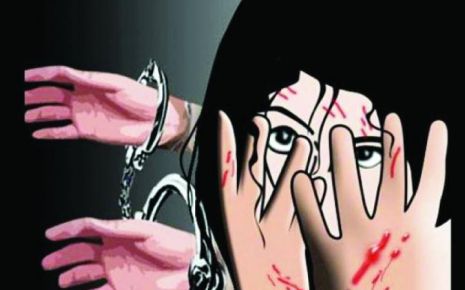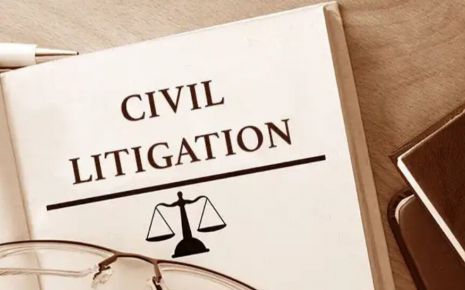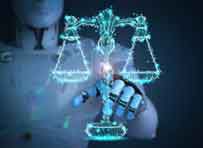Protection Against Double Jeopardy
Statements made by judges and academics about the idea that someone should be
shielded from double jeopardy frequently either assume or subtly imply that the
rule has a solid theological basis and a long history. Though their legal
systems were very different, the Greeks and Romans were not completely ignorant
of the concept of double jeopardy. Many nations, including Australia, Canada,
the United Kingdom, portions of Asia, and the United States, still have double
jeopardy laws in place today. It is protected by the constitution in numerous
nations, including the US, Canada, Mexico, and India.
Article 14(7) of the International Covenant on Civil and Political Rights, Article 4(1) of Protocol 7 to the European Convention on Human Rights, and Article 50 of the European Union Charter of Fundamental Rights are just a few examples of the international documents that have recognised the protections afforded by this rule. The relevant provisions of the Convention to which the states are party must be complied with by the states.
In a similar vein, once jeopardy has attached, it can be terminated and prosecution completely stopped by a subsequent dismissal that the trial court grants due to mistakes, faults, or a lack of evidence. Nonetheless, the U.S. Supreme Court has ruled that dismissal for non-guilty or non-innocent reasons does not preclude further prosecution and does not give rise to double jeopardy concerns. If a mistrial is declared, which typically happens when jurors are unable to reach a unanimous decision or when it is no longer feasible to conclude a case, jeopardy also ends. Crucially, though, jeopardy will not stop and a retrial will not be prevented by a mistrial or dismissal at the defendant's request or cooperation.
The court decided in Maqbool Husain v. State of Bombay that the sea customs authority is not a court or judicial body and that the decision to confiscate under the Sea Customs Act did not amount to a judicial judgement that was required to consider the double jeopardy defence. Therefore, the prosecution may proceed in accordance with the Foreign Exchange Regulation Act.
The court determined in A.A. Mulla v. State of Maharashtra that the second trial was not invalid since the offences in both trials had separate facts and different elements, making them distinct from one another.
The Supreme Court noted in M.P. Sharma v. Satish Chandra that this right incorporates the following fundamentals:
Our Supreme Court has ruled that the prohibition against double jeopardy, which is protected by Article 20(2) of the Constitution12 and codified in section 300 of the Cr. P.C., does not preclude the application of the aforementioned res judicata rule in India because the two principles do not have the same scope. Because the principle of res judicata holds that if a competent court has previously decided a factual issue in favour of the accused, that decision would constitute estoppels against the prosecution. This would not prevent the accused from being tried again, but rather it would prevent evidence from being admitted that would contradict the factual finding should the accused be tried again for a different crime. The theory of res judicata is also referred to as "issue estoppel" since it is predicated on the identity of the issues at the two trials.
The fundamental distinction between the res judicata and double jeopardy principles is that, although the former applies only when the offence involved in the subsequent proceeding is different from the offence involved in the former proceeding, the latter applies when the subsequent proceeding is being brought for a different offence.
The ruling made by the Privy Council in Sambasivam v. Public Prosecutor, Federation of Malaya, served as the foundation for issue estoppels in India. In this ruling, Lord MacDermott stated that:
It is not accurate to argue that someone acquitted cannot be tried for the same offence again following an acquittal rendered by a competent court following a valid charge and trial. It is necessary to add that the decision is final and binding on the parties to the adjudication in any further processes. The legal principle known as "Res judicata pro veritate accipiture" is equally relevant to criminal and civil actions.
Hedge J. said in Assistant Collector, Customs v. Malwani that the autrefois acquit theory encompasses more than just the estoppel rule. And that the res judicata concept served as its foundation.
Several international agreements and legal frameworks limit the number of criminal prosecutions that can be pursued in a consecutive manner. These include:
A retrial is allowed under the German Code of Criminal Procedure if the verdict is in the defendant's favour or if the following circumstances have occurred:
The legislation further stipulates that there is an additional exception in the event that the court issues an order of summary punishment for less serious misdemeanours without holding a trial.
United Kingdom: Since the Norman Conquest, the doctrines of autrefois acquit and autrefois convict have been a part of common law. They were seen as crucial components of protecting the subject's liberty and upholding due process by requiring processes to be final.
Double Jeopardy was once strictly prohibited in England, but it was repealed by the Criminal Justice Act 2003, which was sponsored by David Blunkett, the Home Secretary at the time. Retrials are now permitted in cases where there is strong new evidence. The Director of Public Prosecution must approve each case, and the Court of Appeal must concur in order to overturn the initial acquittal.
Conclusion:
Every legal system is built upon two pillars. Legal clarity is one, and equity is the other. After the perpetrator is charged and given a sentence, he should understand that he has cleared his name and won't face any more consequences. He needs to know for sure that he won't face charges in the future if he is found not guilty. A punishment, whether absolute or condemnatory, completely bars the offender from being tried again for the same offence or any other crime involving the same facts, whether on private or public property.
Since no one should be punished twice for the same offence, double jeopardy is a feature of every legal system. The accused has the option to invoke the doctrine of double jeopardy, which shields him from punishment for the same offence twice. Different situations are presented in different cases. As a result, the double jeopardy rule cannot be applied in all situations, and it is therefore interpreted differently in each situation.
Judges interpret the rule with care to ensure that no innocent person is penalised. Since the dawn of time, the legal system has included the concept of double jeopardy, which is a sincere attempt to shield the innocent. As a result, it can be regarded as a just and positive ideology founded on fairness, equity, and conscience.
Article 14(7) of the International Covenant on Civil and Political Rights, Article 4(1) of Protocol 7 to the European Convention on Human Rights, and Article 50 of the European Union Charter of Fundamental Rights are just a few examples of the international documents that have recognised the protections afforded by this rule. The relevant provisions of the Convention to which the states are party must be complied with by the states.
When Jeopardy Attaches And Terminate:
When a jury is empaneled in a trial, jeopardy arises. When the first witness is sworn in in a criminal case heard by a judge without a jury, jeopardy arises. If the prosecution and the defendant reach a plea deal, jeopardy does not start to accrue until the plea is accepted by the court. The defendant cannot be brought into court for further hearings on the same case after double jeopardy has ended without raising issues of double jeopardy. The end of jeopardy occurs when a jury returns an acquittal. A jury may reverse the decision on appeal even in the face of strong evidence of the defendant's guilt, as a means of giving the jury the authority to overturn prosecutions that were tainted by prosecutorial, judicial, or police misconduct.In a similar vein, once jeopardy has attached, it can be terminated and prosecution completely stopped by a subsequent dismissal that the trial court grants due to mistakes, faults, or a lack of evidence. Nonetheless, the U.S. Supreme Court has ruled that dismissal for non-guilty or non-innocent reasons does not preclude further prosecution and does not give rise to double jeopardy concerns. If a mistrial is declared, which typically happens when jurors are unable to reach a unanimous decision or when it is no longer feasible to conclude a case, jeopardy also ends. Crucially, though, jeopardy will not stop and a retrial will not be prevented by a mistrial or dismissal at the defendant's request or cooperation.
Indian Laws And Double Jeopardy:
In India, the prohibition against double jeopardy is both a statutory and constitutional guarantee. The General Clauses Act's clause has also acknowledged the concept. Only autrefois convicts are recognised by the Indian Constitution; however, the 1973 Code of Criminal Procedure also includes autrefois convicts. The Indian Constitution recognises the ban on double jeopardy as a basic right. The most crucial point to remember is that Article 20 sub-section (2) is null and void if the offence is not punished in the course of a prosecution.The court decided in Maqbool Husain v. State of Bombay that the sea customs authority is not a court or judicial body and that the decision to confiscate under the Sea Customs Act did not amount to a judicial judgement that was required to consider the double jeopardy defence. Therefore, the prosecution may proceed in accordance with the Foreign Exchange Regulation Act.
The court determined in A.A. Mulla v. State of Maharashtra that the second trial was not invalid since the offences in both trials had separate facts and different elements, making them distinct from one another.
The Supreme Court noted in M.P. Sharma v. Satish Chandra that this right incorporates the following fundamentals:
- It is a privilege that belongs to the individual who is "accused of an offence."
- It serves as a safeguard against "remuneration for testifying."
- It serves as a safeguard against any pressure to testify "against himself."
Double Jeopardy And Res Judicata/ Issue Estoppel:
The doctrine of protection against double jeopardy essentially states that an issue cannot be reopened or re-litigated once it has been resolved. The notion of finality was articulated in the Roman-law theory known as res judicata. The fundamental principle of the theory is that an opponent's matter or question that has already been decided upon in a prior court case cannot be brought up again. Roman writings on the res judicata concept demonstrate a concern that a community should be shielded against what may be seen as an oppressive proliferation of lawsuits.Our Supreme Court has ruled that the prohibition against double jeopardy, which is protected by Article 20(2) of the Constitution12 and codified in section 300 of the Cr. P.C., does not preclude the application of the aforementioned res judicata rule in India because the two principles do not have the same scope. Because the principle of res judicata holds that if a competent court has previously decided a factual issue in favour of the accused, that decision would constitute estoppels against the prosecution. This would not prevent the accused from being tried again, but rather it would prevent evidence from being admitted that would contradict the factual finding should the accused be tried again for a different crime. The theory of res judicata is also referred to as "issue estoppel" since it is predicated on the identity of the issues at the two trials.
The fundamental distinction between the res judicata and double jeopardy principles is that, although the former applies only when the offence involved in the subsequent proceeding is different from the offence involved in the former proceeding, the latter applies when the subsequent proceeding is being brought for a different offence.
The ruling made by the Privy Council in Sambasivam v. Public Prosecutor, Federation of Malaya, served as the foundation for issue estoppels in India. In this ruling, Lord MacDermott stated that:
It is not accurate to argue that someone acquitted cannot be tried for the same offence again following an acquittal rendered by a competent court following a valid charge and trial. It is necessary to add that the decision is final and binding on the parties to the adjudication in any further processes. The legal principle known as "Res judicata pro veritate accipiture" is equally relevant to criminal and civil actions.
Hedge J. said in Assistant Collector, Customs v. Malwani that the autrefois acquit theory encompasses more than just the estoppel rule. And that the res judicata concept served as its foundation.
Double Jeopardy At International Level:
Many nations around the world acknowledge the idea of double jeopardy. It is described below:Several international agreements and legal frameworks limit the number of criminal prosecutions that can be pursued in a consecutive manner. These include:
Canada:
The Canadian Charter of Rights and Freedoms, section 11(h), defines double jeopardy in this country. This restriction, however, only takes effect upon an accused person's "final" conviction or acquittal. Unlike US law, Canadian law permits the prosecution to file an appeal following an acquittal. The subsequent trial is not seen as double jeopardy if the acquittal is overturned because the first trial's verdict would have been overturned. A court of appeals may also, in exceptional cases, replace a conviction for an acquittal. Neither of these situations is regarded as double jeopardy.Germany:
Double jeopardy is prevented by the Federal Republic of Germany's basic legislation. if a decision is made in the end. If there is no appeal against a decision, it is final. "Nobody should be punished multiple times for the same crime on the basis of general criminal law," states Article 103(3) of the basic legislation.A retrial is allowed under the German Code of Criminal Procedure if the verdict is in the defendant's favour or if the following circumstances have occurred:
- if a fake or counterfeit document presented as authentic for his advantage during the main hearing;
- If a witness or expert was guilty of a deliberate or careless breach of the obligation imposed by the oath, or of knowingly making an unsworn false statement, while providing testimony or an opinion for the benefit of the defendant;
- If the individual who was acquitted makes a credible confession, either in or out of court, that he committed the criminal offence;
- If a judge or lay judge who was guilty of a criminal violation of his official duties in regard to the case participated in the judgment's formulation.
The legislation further stipulates that there is an additional exception in the event that the court issues an order of summary punishment for less serious misdemeanours without holding a trial.
United Kingdom: Since the Norman Conquest, the doctrines of autrefois acquit and autrefois convict have been a part of common law. They were seen as crucial components of protecting the subject's liberty and upholding due process by requiring processes to be final.
Double Jeopardy was once strictly prohibited in England, but it was repealed by the Criminal Justice Act 2003, which was sponsored by David Blunkett, the Home Secretary at the time. Retrials are now permitted in cases where there is strong new evidence. The Director of Public Prosecution must approve each case, and the Court of Appeal must concur in order to overturn the initial acquittal.
Conclusion:
Every legal system is built upon two pillars. Legal clarity is one, and equity is the other. After the perpetrator is charged and given a sentence, he should understand that he has cleared his name and won't face any more consequences. He needs to know for sure that he won't face charges in the future if he is found not guilty. A punishment, whether absolute or condemnatory, completely bars the offender from being tried again for the same offence or any other crime involving the same facts, whether on private or public property.
Since no one should be punished twice for the same offence, double jeopardy is a feature of every legal system. The accused has the option to invoke the doctrine of double jeopardy, which shields him from punishment for the same offence twice. Different situations are presented in different cases. As a result, the double jeopardy rule cannot be applied in all situations, and it is therefore interpreted differently in each situation.
Judges interpret the rule with care to ensure that no innocent person is penalised. Since the dawn of time, the legal system has included the concept of double jeopardy, which is a sincere attempt to shield the innocent. As a result, it can be regarded as a just and positive ideology founded on fairness, equity, and conscience.
Law Article in India
Legal Question & Answers
Lawyers in India - Search By City
LawArticles
How To File For Mutual Divorce In Delhi

How To File For Mutual Divorce In Delhi Mutual Consent Divorce is the Simplest Way to Obtain a D...
Increased Age For Girls Marriage

It is hoped that the Prohibition of Child Marriage (Amendment) Bill, 2021, which intends to inc...
Facade of Social Media

One may very easily get absorbed in the lives of others as one scrolls through a Facebook news ...
Section 482 CrPc - Quashing Of FIR: Guid...

The Inherent power under Section 482 in The Code Of Criminal Procedure, 1973 (37th Chapter of t...
The Uniform Civil Code (UCC) in India: A...

The Uniform Civil Code (UCC) is a concept that proposes the unification of personal laws across...
Role Of Artificial Intelligence In Legal...

Artificial intelligence (AI) is revolutionizing various sectors of the economy, and the legal i...








Please Drop Your Comments